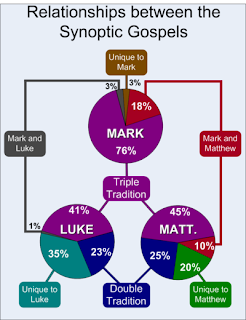Conclusion
While skepticism is necessary I have found most form criticism passes beyond skepticism and borders on a lack of belief in the inspiration of Scripture. I fail to see the point in proclaiming a Gospel that has no historical validity as it would seem to offer no hope to those who have heard and accepted the free gift of salvation in Jesus Christ. In fact, it appears that any single critical method alone lends itself to a myopic view of the development of the canonical Gospels and tries to “put God in a box” if you will.
A number of solutions have come in and out of fashion over the centuries. Many have been repackaged while different ways of approaching Biblical criticism have developed offering new insights. Of course, once cannot understate the importance of new discoveries. The discovery of the Dead Sea Scrolls and the Gospel of Thomas has done much to advance this and other academic discussions about the Bible, Christianity, and God. I believe those discussions have value and should continue though perhaps with more clarity around what is fact and what is merely hypothesis.
To choose a single solution to the Synoptic Problem almost seems like an academic exercise better left to scholars who have devoted careers to such studies. Perhaps in time during my studies I will become comfortable with the fact that, in some small way, I am striving to join the ranks of those scholars. Given that fact, I find that I am most in agreement with the Two Source Hypothesis. Given the research I have completed, the undeniable relationships of the Synoptic Gospels, and the fact that Luke states he used sources when writing his Gospel, I believe there is a literary dependence present and that the priority of Mark simply makes the most sense. I do not believe that the Two Source Hypothesis answers all of the questions about the Synoptic Gospels but it is increasingly clear that none of the proposed solutions I have reviewed are without flaws. I also remain unconvinced as to the existence of Q and as a new student am rather surprised that something that has never been seen is held in such high regard.
Perhaps the story of Jesus healing the blind man in John’s Gospel (9:1-41) can put the Synoptic Problem into context. The blind man didn’t have to understand how Jesus gave him sight for him to know he could see. It is not always necessary for us to understand everything for us to believe in something. With the guidance of the Holy Spirit though, I do believe I will continue to study this problem. It is fascinating!
